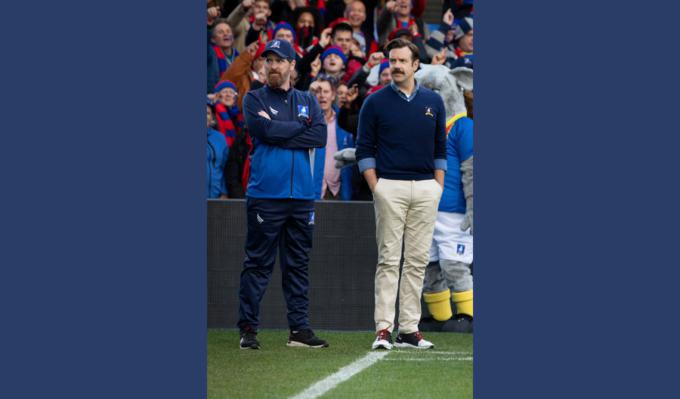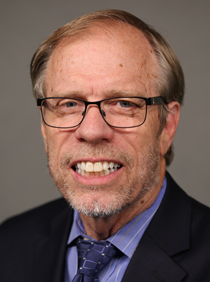
Culture
Dads need to be present. They also need to be loving, genuinely to care for their wives and their children.

Erlandson
Judging from media coverage, the press has been gaga over the HBO series "Succession." It chronicled the Roy family, a dysfunctional media brood with an oppressive, manipulative patriarch and an endless series of intrigues and betrayals.
The series' finale arrived around the same time another popular series hung up its cleats: "Ted Lasso" (Apple TV). "Ted Lasso," about an American football coach recruited to manage an English soccer team called the Richmond Greyhounds, is a three-seasons' long reflection on fatherhood, masculinity, and forgiveness.
If "Succession" is a close examination of humanity gone bad, "Ted Lasso" is refreshingly aspirational. Here's a coach who is quick to forgive even betrayal by his boss. He seeks to bring out the best in his players, preaches the power of teamwork, and sincerely believes that there are goals more important than wins and losses.
Ted, played by Jason Sudeikis, is a wounded healer. He must deal with the breakup of his marriage, separation from his son, and the lasting impact of his own father's suicide. In Lasso World, however, men are not afraid of getting help, both professionally and from their friends. The shame is not in the hurt, but in refusing to face the hurt.
There are plotlines that I could probably have lived without, and the "F-word" appears to be as common in England as "um" is in America. But "Lasso" is another contribution to what appears to be the discussion of the hour: What's wrong with men, and where are the fathers?
Everyone from Sen. Josh Hawley (author of "Manhood: The Masculine Virtues America Needs") to my brother Patrick (who founded an event called "Father-Con") are weighing in on the topic. This spurt of introspection seems like something Ted Lasso could get behind.
As we head into another Father's Day with barbecues and goofy cards, it is worth reflecting on what are the virtues of fatherhood we should be extolling.
Perhaps the first is presence. Fathers are too often absent from families, because of their own irresponsibility or inability to keep their commitments. Or because their commitments only extend as far as work. The old feminist slogan that "a woman needs a man like a fish needs a bicycle" makes for a good T-shirt, but it falls flat when it comes to families. As my brother tells it, the absence of concerned and involved fathers contributes to the rise of children being trafficked in this country.
Dads need to be present. They also need to be loving, genuinely to care for their wives and their children. I know Christians who confess they have trouble believing in a loving God the Father because they never experienced the kind of love that would have a father rush out to embrace his prodigal son. A father not afraid to love and able to forgive is a blessing indeed.
Dads need to be strong, of course. But this isn't just bench-press strength. It is the strength that can lead by example, that isn't afraid to admit when he's wrong, or when he needs help. It is also the strength that allows one to stick to one's convictions, to live one's faith, to stick up for the weak or the marginalized.
I think there is one more thing that "Ted Lasso" implicitly gets. Men need a team. That team may be spouse and children, but it can also be a community that supports them and holds them accountable.
We are a lonely country, the pollsters tell us. So are all the people in "Succession," I'd wager, but not Ted Lasso's Richmond Greyhounds.
As Trent Crimm, the show's skeptical Brit journalist, puts it, "If the Lasso way is wrong, it's hard to imagine being right."
- Greg Erlandson is director and editor-in-chief of Catholic News Service.
Recent articles in the Culture & Events section
-
What is truth?Michael Reardon
-
The 75th anniversary of St. Ignatius of Loyola Church, Chestnut HillThomas Lester
-
The most important prayer you already knowLaura Kelly Fanucci
-
Two years after DobbsRussell Shaw
-
Scripture Reflection for July 21, 2024, Sixteenth Sunday in Ordinary TimeDeacon Greg Kandra





